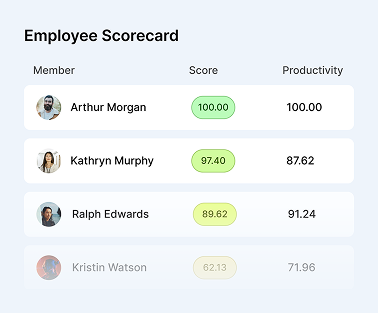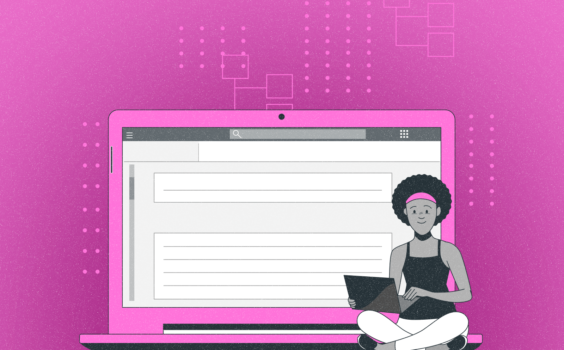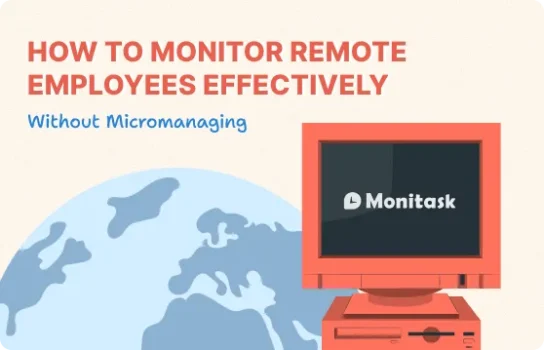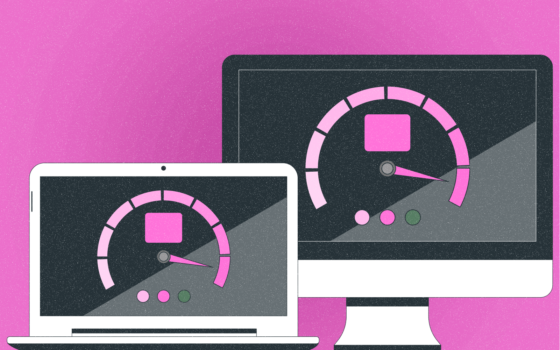10 Proven Strategies to Improve Work Performance and Get Noticed
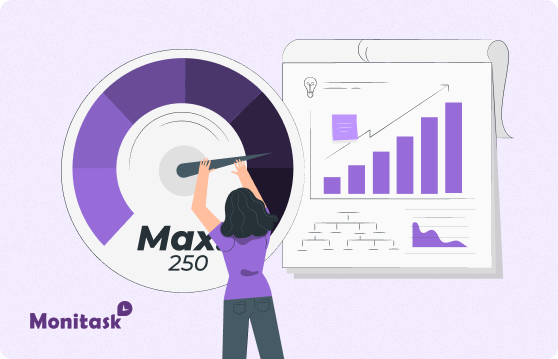
You don’t need more hours in the day — you need better habits. Great performers know how to focus on what matters, manage their time intentionally, and turn effort into impact.
Performance drives opportunity. The employees who consistently deliver results — not just effort — are the ones who advance, inspire, and lead.
Here are 10 practical strategies to help you boost your performance, stay productive, and get recognized for your results.
Why Work Performance Matters More Than Ever?
The workplace has changed dramatically over the past decade. Technology, remote collaboration, and flexible work models have made performance both more measurable and more visible than ever before.
Employers no longer evaluate productivity based solely on attendance or effort — they look at results, consistency, and engagement. Professionals who can demonstrate measurable improvement in their work performance position themselves as assets in any organization.
Moreover, high performance doesn’t just lead to better job titles or salaries — it builds personal confidence, reduces stress, and creates a sense of control.
When you know how to deliver results efficiently, you become more valuable, both to your employer and to yourself.
10 Proven Strategies to Improve Work Performance
Let’s explore the ten strategies that can elevate your productivity and help you get noticed for the right reasons:
1. Set Clear, Achievable Goals
Improving work performance starts with clarity. Many people don’t fall short because they lack ability — they fall short because their goals are too vague. “Do better” or “be more productive” sounds motivating, but it doesn’t give you anything to aim at. Progress only happens when you know exactly what you’re working toward.
That’s where the SMART framework comes in. SMART goals are Specific, Measurable, Achievable, Relevant, and Time-bound — a simple structure that forces you to define what success actually looks like. For example, instead of saying, “I need to work faster,” you might set a goal to “reduce project turnaround time by 15% this quarter.” Suddenly, your objective has shape. You know what you’re measuring, when it should happen, and whether it’s realistic.
Once your goals are that clear, your focus sharpens automatically. You stop wasting effort on low-impact work and start channeling energy toward tasks that truly move the needle. Clarity doesn’t just make you more productive — it makes your work more meaningful.
2. Master Time Management
Time is your most limited resource — and mastering it is one of the most effective ways to improve work performance. Yet, many people underestimate how much time they lose each day to distractions or unimportant tasks.
Start by identifying your peak productivity hours — those times when your concentration and creativity are strongest. Schedule complex or high-priority tasks during those hours and leave simpler, routine work for later in the day.
Use time-management methods like:
✅ The Pomodoro Technique: Work for 25 minutes, then rest for 5.
✅ The Eisenhower Matrix: Distinguish between what’s important and what’s urgent.
✅ Time Blocking: Dedicate specific blocks of time to certain types of tasks.
Once you see the truth of your time usage, you can make data-driven changes that lead to measurable improvement.
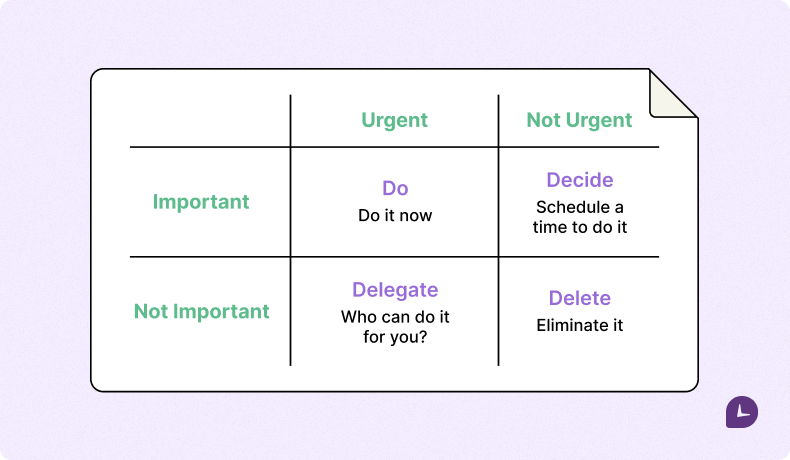
3. Embrace Continuous Learning
In an era where industries evolve rapidly, continuous learning is not a luxury — it’s a necessity. To improve work performance, you need to keep developing new skills and staying current with trends in your field.
Professionals who prioritize learning are better equipped to handle change, adopt new tools quickly, and offer innovative solutions when challenges arise. That kind of adaptability doesn’t just boost your performance — it positions you as a forward-thinking contributor others rely on.
The good news? Learning doesn’t have to be time-consuming. Just setting aside 20 to 30 minutes a day for focused skill development can create real momentum.
Whether you’re following thought leaders on LinkedIn, enrolling in short online courses, joining webinars, or seeking out mentorship, what matters most is consistency.
Every new skill you gain adds to your efficiency, confidence, and long-term value — both to your team and your career.
4. Improve Communication Skills
Communication influences every aspect of your work — collaboration, leadership, problem-solving, and client relationships. Strong communicators are perceived as more capable and trustworthy, which directly contributes to better performance and visibility.
To improve work performance through communication:
✅ Be concise and specific. Avoid ambiguity that causes confusion.
✅ Practice active listening. Understanding others’ needs prevents errors and delays.
✅ Tailor your communication style. Adapt to your audience — colleagues, clients, or executives.
✅ Give constructive feedback. Focus on solutions rather than criticism.
Good communicators help teams move faster and make better decisions. Whether you’re working remotely or in person, honing communication skills can transform your effectiveness — and make you the person people want to collaborate with.
5. Use Productivity Tools Wisely
Technology has revolutionized productivity — but only if used thoughtfully. With countless apps available, the challenge is not finding tools but choosing the right ones that truly help you improve work performance.
Some categories to consider include:
✅ Project management tools – Asana, Trello, ClickUp.
✅ Collaboration platforms – Slack, Microsoft Teams, Google Workspace.
✅ Time tracking and productivity analytics – Monitask.
Monitask stands out because it bridges the gap between accountability and autonomy. It allows individuals and teams to track time spent on projects, visualize workloads, and generate reports — without intrusive monitoring. The platform promotes self-management by helping users see where their time goes, identify inefficiencies, and make smarter adjustments.
When you combine such tools with disciplined habits, your productivity can increase exponentially — giving you an edge in both individual and team performance.
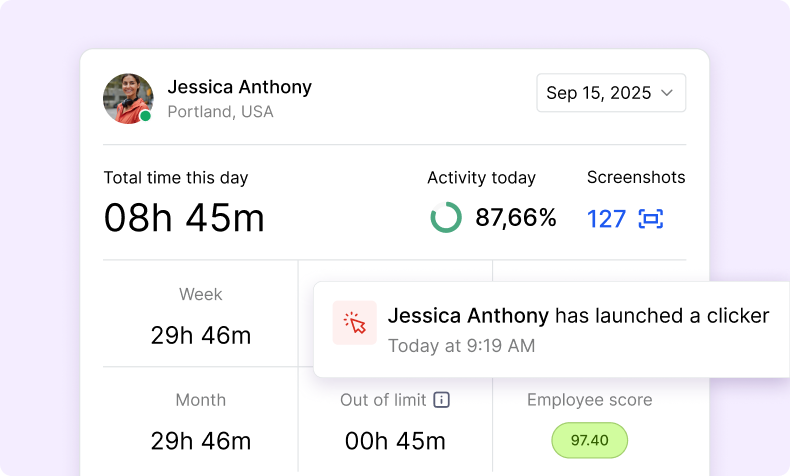
6. Seek Feedback and Act on It
Feedback is one of the most powerful tools for growth — and yet, it’s one of the most underused. Many people avoid it because it feels uncomfortable or personal. But in reality, feedback is just information. It shows you what you’re missing, where you can improve, and how others experience your work.
Asking for it regularly — from your manager, teammates, or even clients — signals maturity and initiative. Simple questions like, “What’s one thing I could improve?” or “Is there anything I could be doing more efficiently?” can open the door to insights you’d never uncover on your own.
The key is not just to listen, but to act. When you take feedback seriously and make real changes, you show that you’re adaptable, self-aware, and committed to getting better. That mindset earns trust — and attention.
7. Maintain Work-Life Balance
Contrary to popular belief, pushing yourself beyond healthy limits doesn’t improve productivity — it destroys it. Burnout leads to slower decision-making, reduced creativity, and higher error rates.
A balanced lifestyle fuels sustained performance. To maintain it:
✅ Set firm boundaries between work and personal time.
✅ Take short, regular breaks throughout the day.
✅ Prioritize sleep, exercise, and nutrition.
✅ Practice mindfulness or relaxation techniques.
When your mind and body are rested, your output improves naturally. In the long term, balance ensures consistency — and consistency is what truly gets you noticed.
8. Boost Focus and Minimize Distractions
Focus is the multiplier of productivity. Every interruption costs more than just a few seconds — it can take several minutes to regain deep concentration. If you want to improve work performance, you need strategies that protect your attention.
Try implementing these habits:
✅ Turn off notifications for non-essential apps.
✅ Set “focus hours” in your calendar when no meetings are allowed.
✅ Use noise-canceling headphones or ambient music for deep work.
✅ Apply the “two-minute rule” — if something takes less than two minutes, do it immediately.
By optimizing focus, you’ll not only complete more work but also improve the quality of your results — a key factor in getting recognized for excellence.
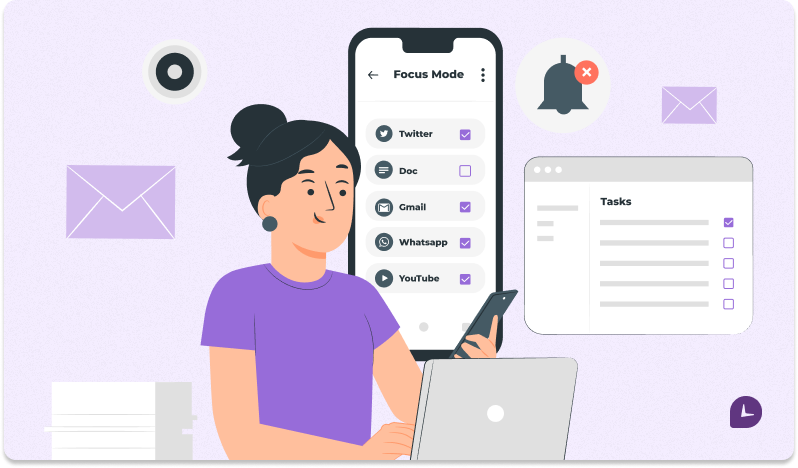
9. Cultivate a Proactive Mindset
Proactive employees don’t wait for directions — they anticipate challenges, find solutions, and seize opportunities. This mindset sets you apart as a dependable leader, even if you’re not in a formal leadership role yet.
To cultivate proactivity:
✅ Review upcoming projects and identify potential obstacles early.
✅ Offer solutions before problems escalate.
✅ Volunteer for challenging assignments to expand your skills.
✅ Share insights or process improvements with your team.
Proactivity demonstrates initiative and ownership — qualities managers notice and reward. When you consistently step up before you’re asked, you become someone others rely on.
10. Track Your Progress and Celebrate Wins
The final step in improving work performance is measuring your growth. Without tracking, it’s impossible to know whether your strategies are working or where you need adjustments.
Tracking doesn’t just keep you accountable — it motivates you. When you see tangible progress, you reinforce positive habits and build momentum.
Monitask makes progress tracking effortless by offering:
✅ Detailed time reports that show how much effort went into each project.
✅ Activity charts revealing your most productive periods.
✅ Team insights for understanding collective efficiency.
Celebrate both small and big wins. Completing a complex project, improving response times, or learning a new tool — these milestones deserve acknowledgment. Recognition, even self-recognition, strengthens confidence and keeps you moving forward.
Maximize productivity of your business
Track employee productivity and simplify work with them
How Monitask Helps You Improve Work Performance?
At the core of every productivity improvement strategy lies one truth: you can’t improve what you don’t measure. That’s exactly where Monitask excels.
Here’s how Monitask helps professionals and teams take control of their performance:
Unlike traditional surveillance tools, Monitask empowers users. It promotes trust, self-awareness, and continuous improvement — making it an invaluable ally for anyone who wants to work smarter, not harder.
By integrating Monitask into your daily workflow, you gain clarity over how you spend your time, discover new ways to improve, and can confidently demonstrate your value to employers or clients.
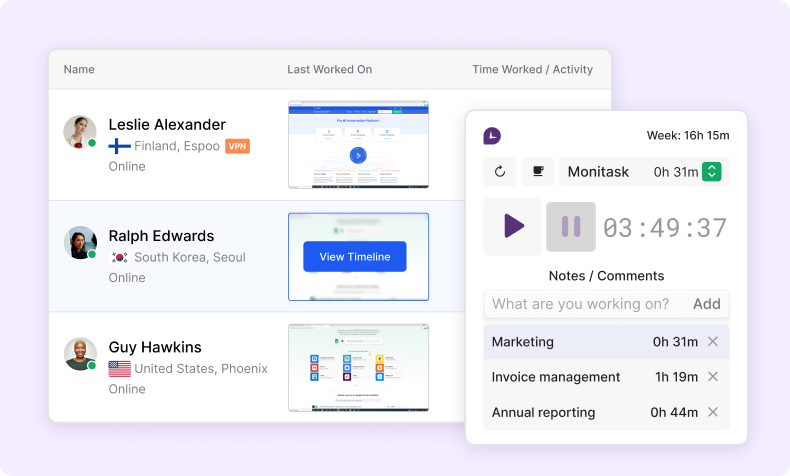
Conclusion: Work Performance
Improving your work performance isn’t about hitting every mark, it’s about building awareness, sharpening your habits, and showing up with intention. When you focus on meaningful goals and apply consistent effort, progress becomes inevitable.
Start with clarity. Manage your time like it matters. Keep learning, listen to feedback, and protect your focus. Don’t just respond to work, shape it. And when momentum builds, don’t forget to celebrate how far you’ve come.
In today’s workplace, value creates visibility. The more clearly you deliver results, the more doors you open, not just to recognition, but to real fulfillment.
So start now. Work with purpose. Let your output speak, and let your results lead the way.
– The Monitask Team
FAQ: How to Improve Work Performance
How quickly can I expect to see results?
Most people notice improved productivity within two to four weeks after applying consistent time management and focus strategies.
Does using a time tracker like Monitask make me more efficient?
Absolutely. Time trackers reveal hidden time sinks, helping you make smarter decisions about task prioritization and workflow optimization.
How can I get noticed at work without overworking?
Focus on delivering quality results consistently. Use performance data from Monitask to showcase your achievements during reviews — proving your impact without burning out.
What’s the biggest mistake people make when trying to improve performance?
Focusing on working harder instead of smarter. Improvement comes from clarity, discipline, and measurable action — not from exhaustion.
